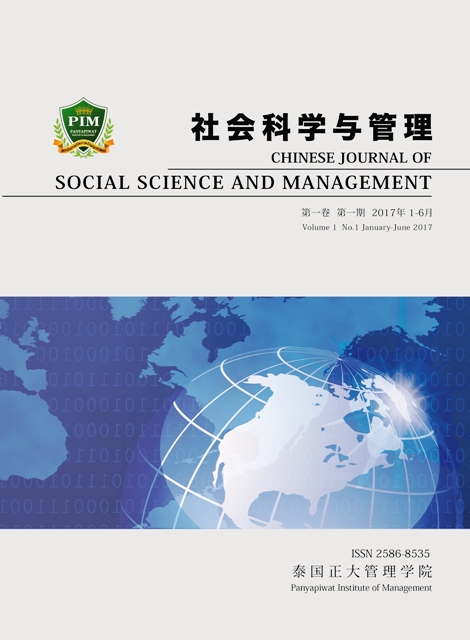FACTORS AFFECTING THE ENTERTAIN-ORIENTED PHENOMENON OF FILM AND TV DRAMA IN CHINA
Main Article Content
Abstract
Chinese film industry has experienced years of reformation and development, and has now entered
a new stage of rapid development, but some problems that appeared in the process of transformation
of Chinese film industry has certainly constrain healthy and rapid development of China film industry,
particularly is the Chinese TV drama “entertainment” phenomenon. Through the questionnaire
designation and survey method, the questionnaire is designed to release, investigating and recovering
questionnaires on the Chinese TV drama “entertainment” phenomenon, and then analyzing on various
factors of Chinese TV drama “entertainment” phenomenon by statistical analysis to get the correlation
between various factors and the degree of influence of various factors on the “entertainment”
phenomenon. Finally, on the basis of the correlation and the degree of influence of various factors, putting
forward to strengthen the social responsibility of “ gatekeeper” and promote the socialist core values;
to create a fine TV drama art and improve media literacy and promote diversified development of producer
and business model of Chinese TV drama; to abide the standards of review, strengthen “value
orientation”, respect for history, maintain the original and so on to promote the development of Chinese
film industry in good health.
Article Details
Chinese Journal of Social Science and Management Editorial Division
The Office of Research and Development, Panyapiwat Institute of Management
85/1 Moo 2, Chaengwattana Rd., Bang Talat, Pakkred, Nonthaburi 11120, Thailand
Tel. 02 855 01048 E-mail: cjssm@pim.ac.th
References
Fu, Y. (2013). Behind the appearance of dust entertainment- the narrative ethics of literature and television play whose theme are defeat the Japanese. Master’s thesis, Liaoning University. [in Chinese]
Li, R. (2014). The research of Chinese Anti-Japanese War Drama’s Excessive Entertainment. Master’s thesis, Shanghai JiaoTong University. [in Chinese]
Terrell, J. (2000). Industrial Organization Theory. Beijing: China press. [in Chinese]
Sun, X. (2015). Analysis of the phenomenon of College Students’ Film and Television Aesthetics and Entertainment under the background of Mass Culture. Beauty & Times, (10), 58-59. [in Chinese]
Tian, J. (2007). Reflections on the entertainment tendency of movie art. Movie Review, (15), 21-22. [in Chinese]
Yang, M. (2011). The Symbiosis of “Guide” and “Carnival” -- Analysis of the Phenomenon of TV programs’ Pan Entertainment. Master’s thesis, Shaanxi Normal Normal University. [in Chinese]
Xia, L. (2015). A Survey of the Phenomenon of “News Amusement” in China. Southeast Communication, (1), 129-131. [in Chinese]
Xiong, B. (2013). A Study on China TV Industry in New Media Age. Master’s thesis, Wuhan University. [in Chinese]
Yi, N. (1993). Some Questions about the Market Orientation of Chinese Teleplay Production. China Television, (1), 23-24. [in Chinese]
Wang, P. (2016). Research on the phenomenon of news entertainment. West China Broadcasting TV, (1), 23-24. [in Chinese]
Wang, C. (2016). Entertainment Phenomenon of Film and Television News in the New Era. Journal of News Research, (13), 332-332. [in Chinese]
Wang, Z. (2012). Research on the impact of entertainment news form the play theory of mass communication. Master’s thesis, Liaoning University. [in Chinese]
Zhan, C. (2011). Research on Zhejiang Industry’s Film and TV Development Baed on Reform of the cultural system background. Master’s thesis, WuHan University. [in Chinese]


